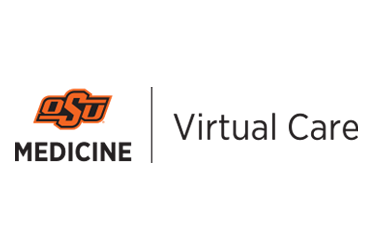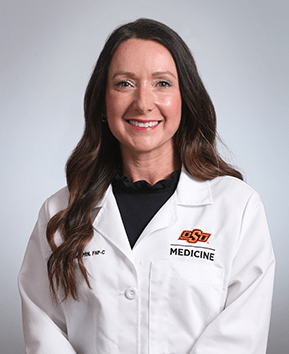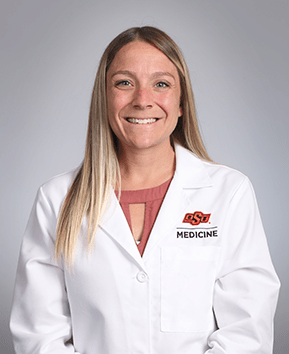Enhancing Health Care Access Through Virtual Services
OSU Medicine Virtual Care is expanding access to bridge the health care gap across Oklahoma utilizing technology and innovative tools to bring the expertise of its physicians and providers directly to Oklahomans across the state.
A significant 71% of Oklahoma’s population resides in a Health Professional Shortage Area (HPSA), highlighting a critical need for increased access to clinical services.
As a leading health care institution in Oklahoma, particularly in primary care and rural health, we are committed to addressing the health care needs of communities statewide. OSU Virtual Care supports these communities by providing readily available specialized clinical expertise and care coordination.
Innovating Care Across Oklahoma
OSU Medicine, in collaboration with Percipio Health, is developing a virtual population health platform. This platform will leverage AI to collect and analyze health data, creating a holistic view of an individual’s health. It will offer automated and personalized interactions, along with AI-driven insights for health monitoring and management.
School-Based Virtual Health Care: Convenient for Students and Families
OSU’s Virtual Quick Care brings basic medical care directly to your child at school through a secure video visit with a licensed nurse practitioner. We treat common issues like sore throats, rashes, coughs, and more—and in some schools, we can even provide rapid flu and strep tests. Best of all, parents can join the visit virtually for peace of mind. It’s fast, convenient, and completely free to families.
For information on services and partnerships with OSU Virtual Care, contact:
Jared M. Droze, MHA
Director of Virtual Care
OSU Medicine
jared.droze@okstate.edu
Mike Shea, DHA
Executive Director of Strategic Initiatives
OSU Medicine
mike.shea@okstate.edu
Bradley Anderson, D.O.
Medical Director, Virtual Care
OSU Medicine
bradley.w.anderson@okstate.edu
Locations
Find a Doctor
Antlers Community Health Clinic Address: 506 N. HWY 271, Suite C Antlers, OK 74523
Antlers Community Health Clinic Address: 506 N. HWY 271, Suite C Antlers, OK 74523


